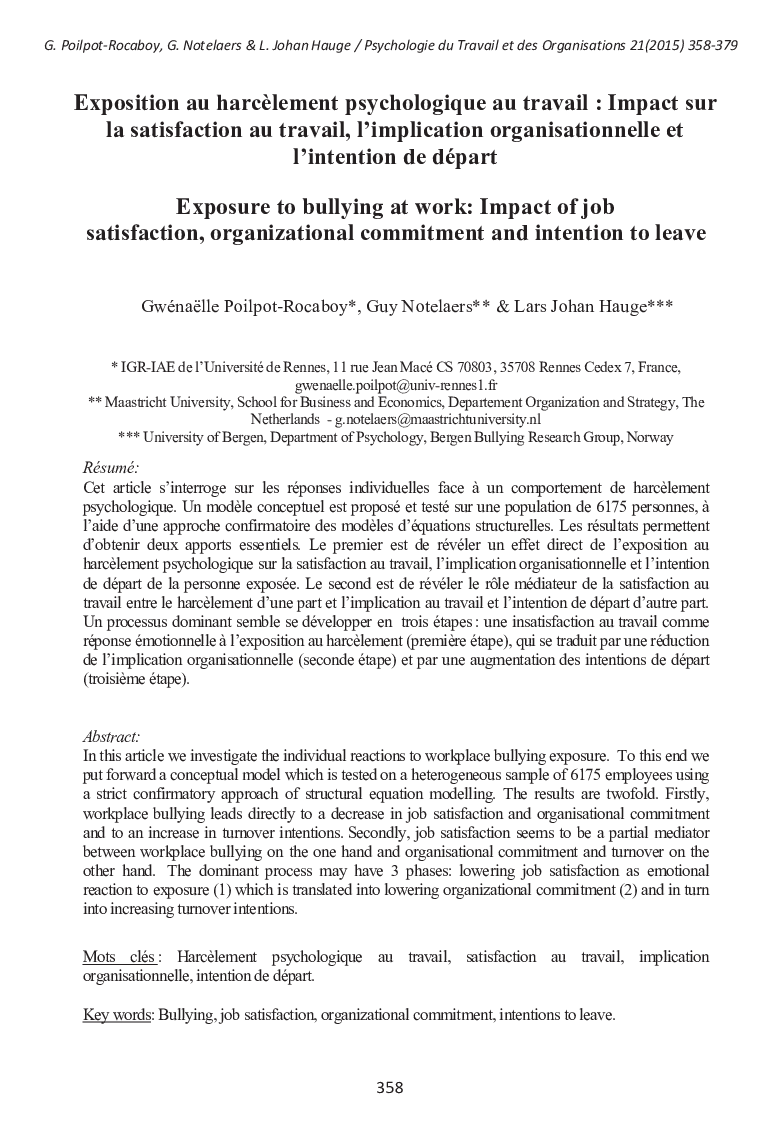| کد مقاله | کد نشریه | سال انتشار | مقاله انگلیسی | نسخه تمام متن |
|---|---|---|---|---|
| 893965 | 1472077 | 2015 | 22 صفحه PDF | دانلود رایگان |

RésuméCet article s’interroge sur les réponses individuelles face à un comportement de harcèlement psychologique. Un modèle conceptuel est proposé et testé sur une population de 6175 personnes, à l’aide d’une approche confirmatoire des modèles d’équations structurelles. Les résultats permettent d’obtenir deux apports essentiels. Le premier est de révéler un effet direct de l’exposition au harcèlement psychologique sur la satisfaction au travail, l’implication organisationnelle et l’intention de départ de la personne exposée. Le second est de révéler le rôle médiateur de la satisfaction au travail entre le harcèlement d’une part et l’implication au travail et l’intention de départ d’autre part. Un processus dominant semble se développer en trois étapes : une insatisfaction au travail comme réponse émotionnelle à l’exposition au harcèlement (première étape), qui se traduit par une réduction de l’implication organisationnelle (seconde étape) et par une augmentation des intentions de départ (troisième étape).
In this article we investigate the individual reactions to workplace bullying exposure. To this end we put forward a conceptual model which is tested on a heterogeneous sample of 6175 employees using a strict confirmatory approach of structural equation modelling. The results are twofold. Firstly, workplace bullying leads directly to a decrease in job satisfaction and organisational commitment and to an increase in turnover intentions. Secondly, job satisfaction seems to be a partial mediator between workplace bullying on the one hand and organisational commitment and turnover on the other hand. The dominant process may have 3 phases: lowering job satisfaction as emotional reaction to exposure (1) which is translated into lowering organizational commitment (2) and in turn into increasing turnover intentions.
Journal: Psychologie du Travail et des Organisations - Volume 21, Issue 4, 2015, Pages 358–379